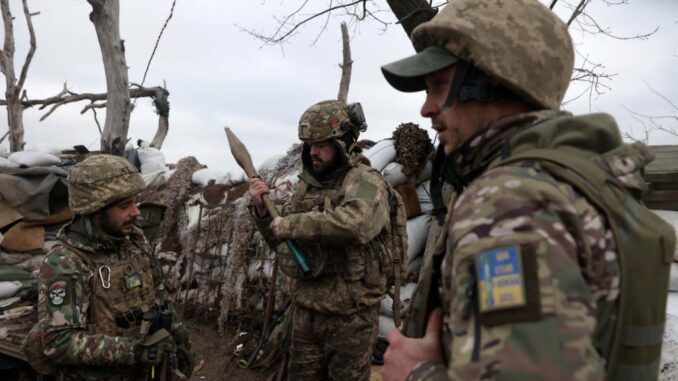
As the Russia-Ukraine war entered one year on February 24, it is clear from all indications that the conflict will not end soon. This does not augur well considering the enormous loss of lives, destructions of property and infrastructure on both sides, displacement of Ukrainians majorly across Europe, and of course, the disruption and heavy toll in which the war has caused and will still cause the rest of the world.
As the war enters another year, it offers a fresh look.
High cost of energy, food and disruptions to supply chains are a few examples. Besides contributing to high cost of food and fertilizers here in Nigeria, our students studying in Ukraine have had their education interrupted and forced to continue or restart their studies elsewhere in Nigeria and Ukraine’s neighbouring countries. What was initially thought to be a quick war that would end in few hours, even as President Vladimir Putin, the initiator of the conflict, had planned has dragged on to a year and will still continue.
The unflinching support of the NATO led by the United States and the unusual display of courage and determination will not allow the war be concluded in the short term.
Military, diplomatic, media and think tanks experts are buttressing the inevitability of a prolong conflict. For instance, Major General (rtd) James ‘Spider’ Marks of the US Army alluded to this position while speaking on the CNN on Monday February 20. 2023.
Also, according to Peter Zeihan on Geopolitics (Feb 9 2023), “The war is just getting started… perhaps the scariest takeaway from the Ukraine War is that it’s just beginning.”President Putin had in some few weeks back indicated on the long prospect of the war before a local audience.
Diplomatic efforts under the auspices of Turkey, India, China and the United Nations (UN) at the early stage of the crisis did not yield peaceful result. Instead, the parties to the conflict are fueling it. Unfortunately, both sides are no more showing any signs to dialogue and negotiate. The events happening as the war clocks a year are turning us to the beginning of another phase of the war, and these are worth examining.
One, to re-strategize for a long conflict, Russia has recruited and mobilized several hundreds of thousands of young men, including the prisoners its mercenary units, the Wagner Group and the Chechnya leader (Ramzan Kadyrov) have deployed to the battlefields. Iran, North Korea, and Belarus are alleged to be supporting Russia with arms and logistics.
Two, the defiant and more combative speeches made by President Putin and President Joe Biden this week of the anniversary indicate an unrelenting conflict. Both are divergent in views and substances. Putin who controls the Russian military, politics, media and economy while speaking at an annual national day suspended the nuclear arms race treaty it has with the US. While firing up the Russian psyche in the speech, he accused the west of a plan to “strategically defeat” Russia.
The west quickly dismissed the remark. This means that no more cooperation on preventing the use of nuclear weapons and therefore, Russia is deploying the nuclear arsenal in its war with Ukraine in an apparent display of defiance in the face of Biden’s support and surprise visit to Ukraine and Poland this week.
The third reason is the surprise visit by President Biden to Kyiv on Monday February 20, four days to the anniversary, which many saw as a symbolism of support and a clear message to Moscow. During the visit, Biden was quoted on CNN as saying, “We now know that the first phase of the war has ended really with a Russian defeat.” Also while in Warsaw, Poland, Biden was quoted as saying “Ukraine will never be a victory for Russia”.
Four, the magnitude of defence, security, intelligence and humanitarian support Ukraine is receiving from allies shows no endgame in sight. US, NATO, UK, EU, Australia, South Korea, and other western allies are supporting Ukraine to prosecute the war. Biden disclosed in Kyiv that fifty countries are providing economic and military support to Ukraine. Besides, its initial $600m commitment, Japan is pledging $5.5bn in aid to Ukraine to mark the anniversary. Israeli Knesset members have also arrived in Kyiv to reinstate support. The backing will drive the war as consultations and dialogues these allies ought to be engaging to resolve the largest war in Europe since the World War II are discarded.
Five, the show of unlimited support the NATO and western powers made to Ukraine, and what the war has revolutionized would not make it to end soon. According to Biden, the US would stand with Ukraine “for as long as it takes” and praised their “heroic” fighting. The US wants to finish the war with Ukrainian victory, as it cannot be a frozen conflict but a victory for Ukraine.
He announced another $500m in aid to Kyiv. The morale such gesture would give to Ukrainian troops will prolong the war as no mediator might be willing to commit to the conflict’s quick resolution. The German defence policy, the boosted EU unity, solidified NATO powers, revived United States commitment to the transatlantic alliance are some of the reasons why the conflict will persists. The question that seems to be in the western mind now is, when will we defeat Putin and not when will the war end.
To be continued tomorrow
Babatunde, PhD, is a fellow and peacebuilding strategist at the Nigeria’s Institute for Peace and Conflict Resolution, Abuja; wrote via austinebabatunde@yahoo.com
END

Be the first to comment